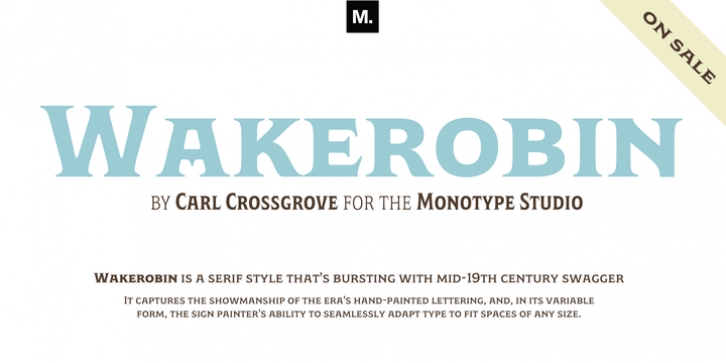Wakerobin was designed by Carl Crossgrove and published by Monotype. Wakerobin contains 16 styles and family package options. The font is currently #48 in Hot New Fonts.
Wakerobin takes its charming swagger from the hand-painted billboard, poster and signage lettering of the mid-19th century. These showy styles did everything they could to stand out from the background cacophony of advertising, with signwriters using sharp and high contrast serif letters, squared block shapes, or art nouveau forms to grab the attention of passersby.
Wakerobin embraces the spirit of these letterforms, bringing these various styles together in one typeface – as if users had their own sign painter on hand. Just as lettering artists had to adapt to a variety of sizes – from wide streetcar lettering to compressed forms that squeezed into narrow Victorian windows – the variable version of Wakerobin scales up and down in width to fit whatever environment the user’s working in. The static fonts come in three widths and five weights.
As well as its adaptability, Wakerobin is bursting with vintage flavour, making it hard to ignore. Its distinctive, spiky serifs would be right at home on food and drinks packaging, as well as shop windows, adverts, and any other place that calls for some typographic showmanship. It performs particularly well in busy environments, or anywhere with a lot of visual noise – just as its historic predecessors did. And while Wakerobin is first and foremost a display typeface, it’s surprisingly elegant when used at text size, or in the lighter end of the weight spectrum.

